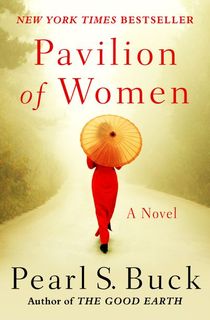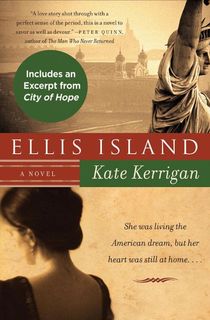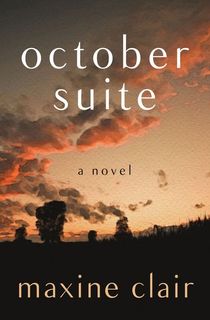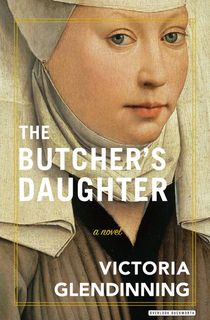It’s no secret that while women have been a driving force in history, their contributions haven’t always been celebrated or even recognized. Historical fiction books allow us to peer into the past and see from the point of view of these women who, when finding themselves constrained by social constructs, rebelled against the status quo. From World War II intrigue to traumatic adoptions, the following stories show us diverse perspectives on women’s experiences, in novels that you’ll find difficult to put down.

The Dictionary of Lost Words
A New York Times bestseller and Reese’s Book Club pick, this novel reveals the power of words—and women. Esme spends her childhood surrounded by a team of lexicographers, with whom her father teams up to collect words for the first Oxford English Dictionary. Bright and curious, Esme realizes that the scholars overlook words that pertain to the female and working-class experience. As she grows up, she decides to correct this oversight by making her own dictionary: the Dictionary of Lost Words.
Her sheltered existence at the university is shattered when she leaves and immerses herself in the diverse world outside its borders, during the height of the women’s suffrage movement. A “captivating and slyly subversive fictional paean to the real women whose work on the Oxford English Dictionary went largely unheralded,” The Dictionary of Lost Words is a satisfying and unforgettable read (The New York Times Book Review).

Before We Were Yours
Disparate timelines are woven together in this “poignant, engrossing” book about shantyboat life and a real historical scandal: a Memphis-based adoption worker who kidnapped and sold poor children to wealthy families (People). In 1939, 12-year-old Rill Foss lives aboard a Mississippi River shantyboat with her parents and four younger siblings. When a medical emergency separates the children from their parents, they find themselves in an orphanage for what they believe is a temporary stay—but the reality is far grimmer. And in the present day, a successful federal prosecutor digs into her family history and discovers some uncomfortable truths about her origins.

Lilac Girls
An “extremely moving and memorable” debut, Lilac Girls crosses oceans in a sweeping story of World War II (Library Journal). In New York, a socialite working at the French consulate must reevaluate everything she thought she knew when Nazi aggression threatens to target France next. In Poland, a teenager in the resistance movement finds herself embroiled in counterintelligence. And in Germany, a young female doctor believes a government position could be her chance to escape personal misfortune. These women’s lives intersect in surprising ways in this New York Times bestseller.

The Guernsey Literary and Potato Peel Pie Society
A surprising twist of fate brings writer Juliet Ashton in touch with a man on Guernsey Island, with whom she keeps up a correspondence in the year after World War II ended. His letters reveal a fascinating life on the island—most notably, the astonishingly named Guernsey Literary and Potato Peel Pie Society, an alibi for meeting with other members during Nazi-imposed curfews. Juliet even decides to write her next book about the club’s members and the impact of German occupation on their lives. She sets off for the Channel Islands to learn more, where she’ll make unforgettable connections in this “sparkling epistolary novel radiating wit”, now a movie on Netflix (The Sunday Times).

Pavilion of Women
At 40, much-respected Madame Wu is ready to give up the pressures of running an upper-class household. She happily finds a concubine for her husband and spends her days reading and learning for leisure, including progressive literature. As she exercises her mind and exposes herself to new ideas, she shocks those around her who still conform to traditional Chinese culture, in this “vivid and extremely interesting” novel (The New Yorker). Nobel Prize-winning author Pearl S. Buck grew up in China with missionary parents and was known for her accurate depictions of life in China and her advocacy for racial and gender equality.

Ellis Island
Set in the 1920s, this novel of immigration and the American dream begins with childhood sweethearts Ellie and John, who are content on their modest Irish farm—until John receives an injury that leaves him unable to work. As they teeter on poverty, Ellie decides to take a job in New York City as the maid to a wealthy American socialite. She’s tempted by riches and a new suitor in this period piece about changing fortunes, romance, and loyalty.

October Suite
In 1950, October Brown is a 23-year old first-year teacher excited to begin anew in Kansas. But everything she worked so hard for falls out of reach when she unexpectedly becomes pregnant. Her job in jeopardy, October travels home to Ohio and makes the incredibly difficult decision to let her married sister raise her child. But is that really what’s best for her? Set in the era of segregation, October will navigate discrimination and the trauma of her past to rebuild a new life for herself.

The Butcher's Daughter
When Agnes Peppin, the daughter of a simple country butcher, is publicly disgraced, she has no choice but to take her vows as a nun. Behind the walls of the Shaftesbury Abbey, she takes solace in her small measure of freedom as assistant to the Abbess. When Henry VIII proclaims himself the new head of the Church, English religious life is thrown into turmoil—but along with the changing landscape, new opportunities arise for Agnes to thrive, despite her social status in a stifling world. The “frequently ruthless world of Henry VIII’s England” comes to life in this gripping read (Library Journal).
This post is sponsored by Random House Publishing Group. Thank you for supporting our partners, who make it possible for The Archive to continue publishing the history stories you love.
Feature image: Michael Oeser / Unsplash




